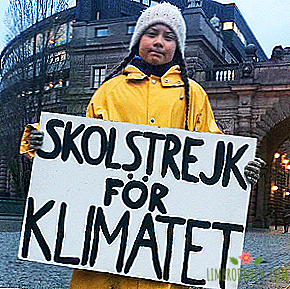Why political correctness is not scary
Political correctness implies caution in words and actions - we avoid words and expressions that may offend or humiliate other people. This clear and simple formulation does not carry any negative meaning in itself, but lately there are more and more disputes around it - and more and more often it is perceived as a curse. It seems that no one is neutral about political correctness: it is customary to either separate her ideas or categorically condemn them. At the same time, there is a lot of gray areas in the very concept, the discussion of which begins only now, before our eyes: where does the border between following the norms of political correctness and censorship lie? Is every claim (for example, that bad sushi in the university canteen is abusive for students of Japanese origin) eligible?

During its existence, the meaning that is put into the concept of political correctness has changed several times: it was used by people with very different beliefs, and seriously, and with irony. For example, as early as the 18th century, Chief Justice John Marshall said that it was more "politically correct," that is, true and accurate, to proclaim the toast "For the Peoples of the United States" and not "For the United States." Although in general, until the beginning of the twentieth century, the expression was practically not used. In the 1930s and 1940s, it was used by the American Communists — then “politically correct” meant that the Communist’s opinion on a certain issue corresponded to the position of the party.
Ruth Perry, a professor of literature at MIT, believes that the modern “liberal” meaning of political correctness began to take shape in the 60s and 70s. Most likely, supporters of left-wing views gathered this expression from Mao Zedong: in 1957, he gave the famous speech "On the question of correct resolution of contradictions within the people", and the adjective "correct" (that is, "correct") was taken from it - but they used it completely in a different way. The phrase “politically correct” was used as a joke - to show the differences between the “new” and “old” followers of the left movement and to check whether its supporters were frozen in their beliefs. “It was our euphemism, and it was always used with irony,” says Perry. “I think it was one of the ways we distinguished ourselves as the New Left, different from the Old Left. He meant giving up categorical and dogma. So you I could say: “I know it’s not politically correct, but I’ll still take a hamburger” or “I know it’s not politically correct, but I shave my legs”. "
Is every claim (for example, that bad sushi in the university canteen is offensive) eligible?
Almost until the beginning of the nineties, the word was used only by supporters of left-wing ideas — until at last they began to speak widely about it. At the same time, modern fears associated with political correctness began to take shape. "Ironically, by the two hundredth anniversary of the Bill of Rights, freedom of speech in the United States was threatened," said George Bush Sr. at a graduation ceremony at the University of Michigan in 1991. "Like Orwell, crusades that require correct behavior destroy diversity , hiding behind the idea of caring for diversity. " The concept was adopted by the neoconservatives who put their own meaning in it: they opposed the changes that political correctness promoted in universities, and believed that multiculturalism implanted the only “correct” point of view without leaving others free choice.
The heyday of political correctness in the United States came at a time when Barack Obama ruled the country. He even wrote an essay where he called himself a feminist, spoke a lot about discrimination and tolerance. In many ways, the answer to Obama’s policy was the coming to power of Donald Trump - he was the voice of those who feel that the new norms are driving them into a corner and are deprived of their right to vote.
In Russia, the attitude towards political correctness has historically evolved even more difficult. In the multinational USSR, one of the main principles was gender equality and "friendship of nations" - but this does not mean that there was no racism and misogyny in the country. For example, the Soviet government actively supported the emancipation of women - and gave them the opportunity to work on a par with men. But in practice, this principle was superimposed on the patriarchal norms that still existed in the country: women had not only to work, but also to take care of the house and family - traditionally “female” duties.

Ten or fifteen years ago, the ideas of political correctness were perceived at least wary, and more often with condemnation, as something completely not close to Russia and not needed by it. It is practically impossible to compare the Russian situation with the American one: the processes that are occurring in Russia just now, in the United States ended already in the last century. In the field of political correctness in our country there are still more questions than answers - but there are no uniform rules. Therefore, for example, the leading Russian news agency, speaking about the WikiLeaks informant, a transgender woman Chelsea Manning, whose sentence was softened the other day, is confused in the wording: "Edward Snowden thanked outgoing President Barack Obama for softening the sentence by Bradley Manning, an informant for WikiLeaks site informant, Bradley Manning, who is passing away, than the outgoing President Barack Obama for mitigating the sentence, Bradley Manning, an informant for the WikiLeaks site informant, Bradley Manning, a returnee, is unrecognizable, in a case, he was recognized, and the recognition was passed. a woman and who took the name of Chelsea. "
The resistance that political correctness encounters is largely politically explained: patriarchal rhetoric is becoming more and more popular in Russia, and Western norms are perceived as something alien, which you must counterpose your way to, which is different from the rest of the world. And yet now the problems of sexism, racism and other types of discrimination in Russia are discussed more often than ever. This is a long and complicated process, which is no less important in the sphere of language and behavior than in the sphere of politics: the way we speak influences our way of thinking and culture as a whole. Therefore, individual words and formulations that were freely used several years ago gradually become irrelevant or at least give rise to discussion.
The struggle to use one wording instead of another may not seem to matter, but often the choice of a certain word is a big part of the problem. As, for example, the use of the correct kind in relation to members of the LGBT community, where words and phrases are an important part of identification. Jokes about homosexuals, women and migrants may seem frivolous and unworthy, but they form a discriminatory background.
Political correctness should not be based on prohibitions and restrictions - empathy plays a major role here
In the United States and in Russia, political correctness is spread to varying degrees. In Russia, ethical standards are lobbied by an active minority, in the USA they have the status of a national policy. But in 2017, in each of the countries, you can see similar processes - growing fatigue from the “dominance” of political correctness. It is called a new censorship, a totalitarian ideology, a way to hide the "inconvenient" truth and an idea that distracts us from the "really important" problems. The very same Donald Trump became a symbol of general fatigue - his successful election campaign was largely based on what he says that others are afraid to say. “I think the country's huge problem is that it is politically correct,” Trump said during a debate when asked by a journalist that he was part of a widespread “attack on women.” “So many people challenged me, honestly, I don’t have time for political correctness. And honestly, our country doesn’t have time for that either. "
Often political correctness is criticized, based only on fears connected with it: restrictions on freedom of speech and “police thoughts”, which should punish wrong behavior. But political correctness should not be built on prohibitions and restrictions - empathy plays a major role here. It does not restrict freedom of speech, but gives the right to vote to those whose opinion has long been ignored and considered unimportant. In order for political correctness not to be reduced to censorship, awareness is needed. The "correct" vocabulary and patterns of behavior can be memorized by heart, like the principles of spelling and punctuation, but what's the point? It is much more important to understand the reason why it is better to use a particular word — for example, what does a transgender request mean to contact him or her in a certain way and what is offensive in the joke about a stupid blonde.




